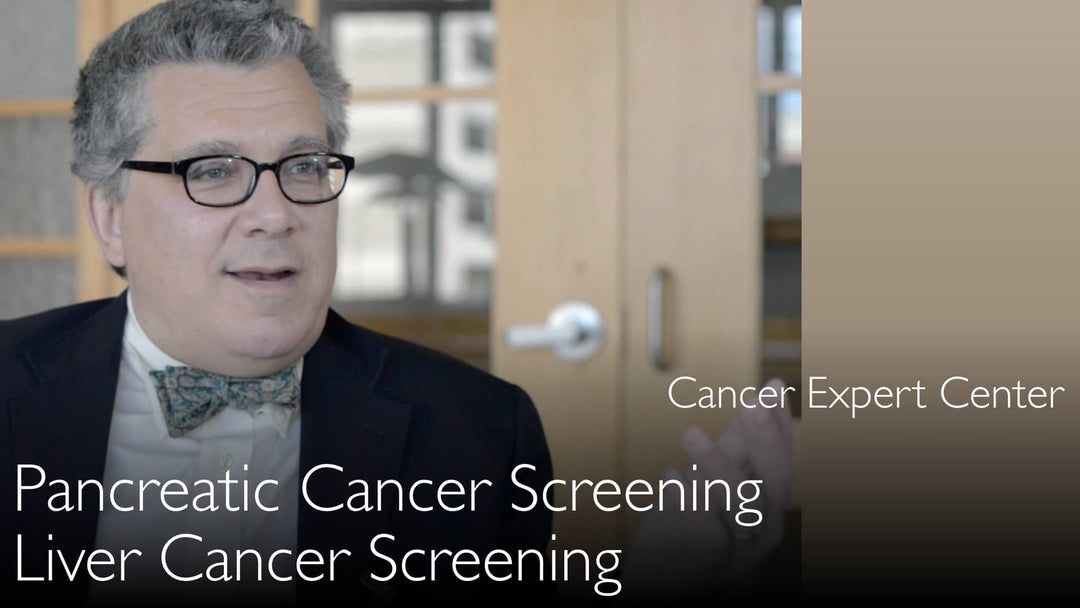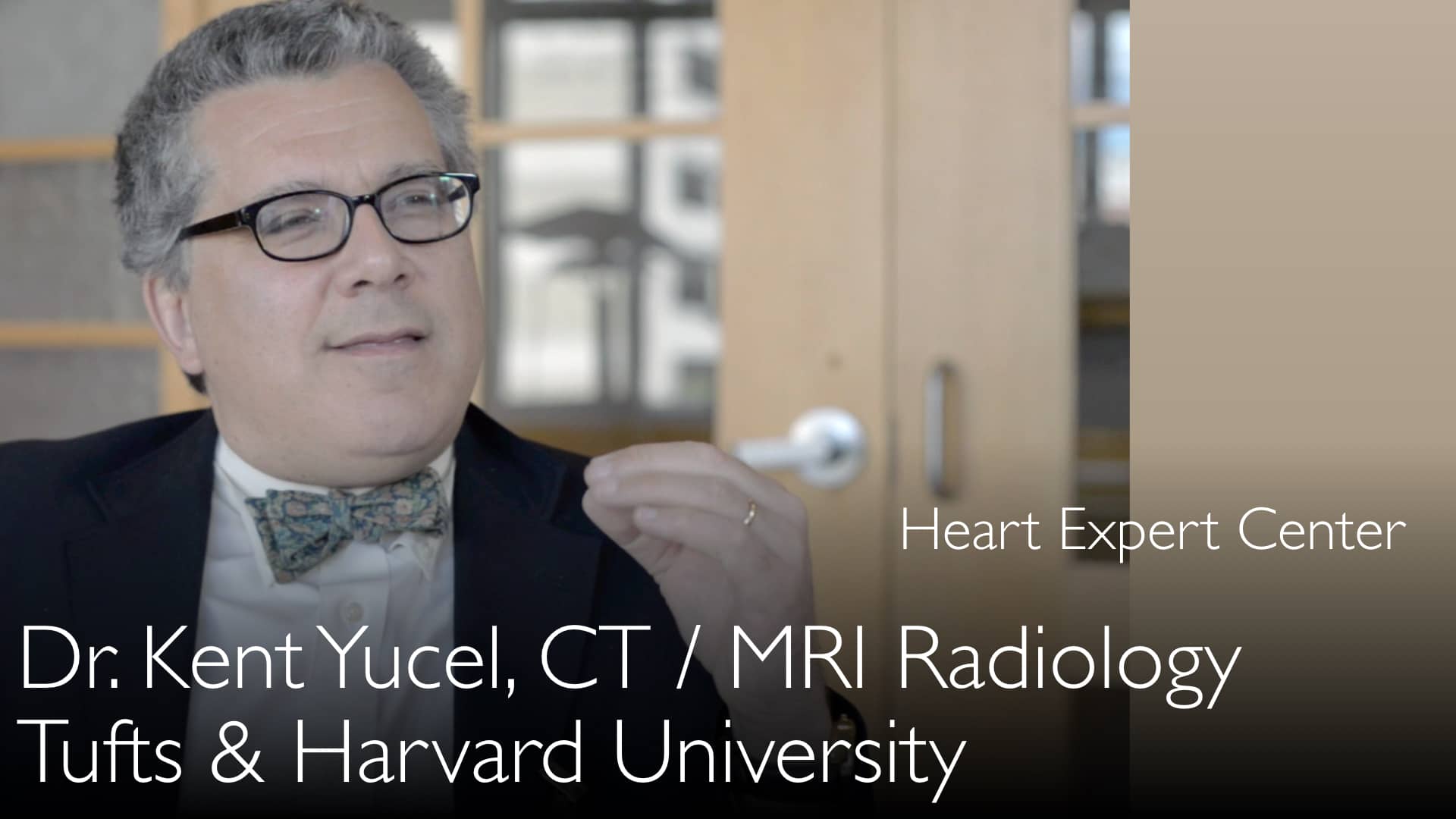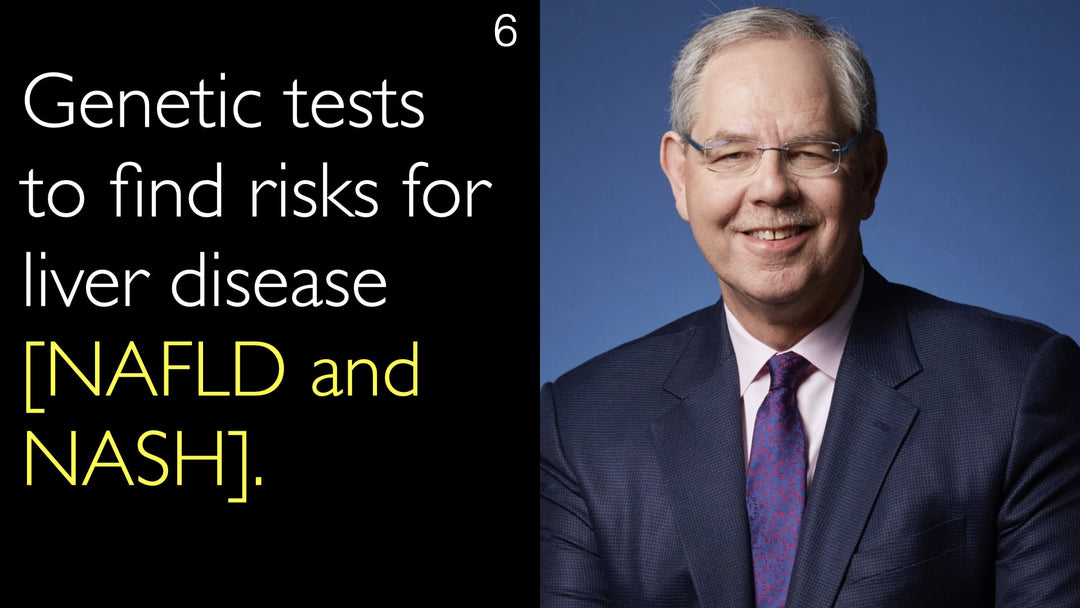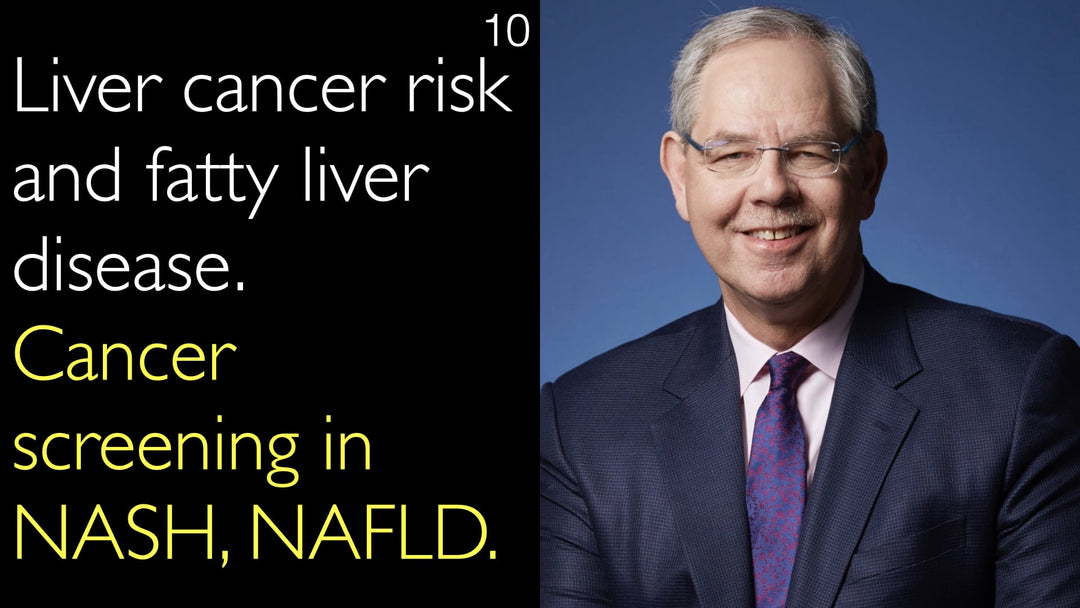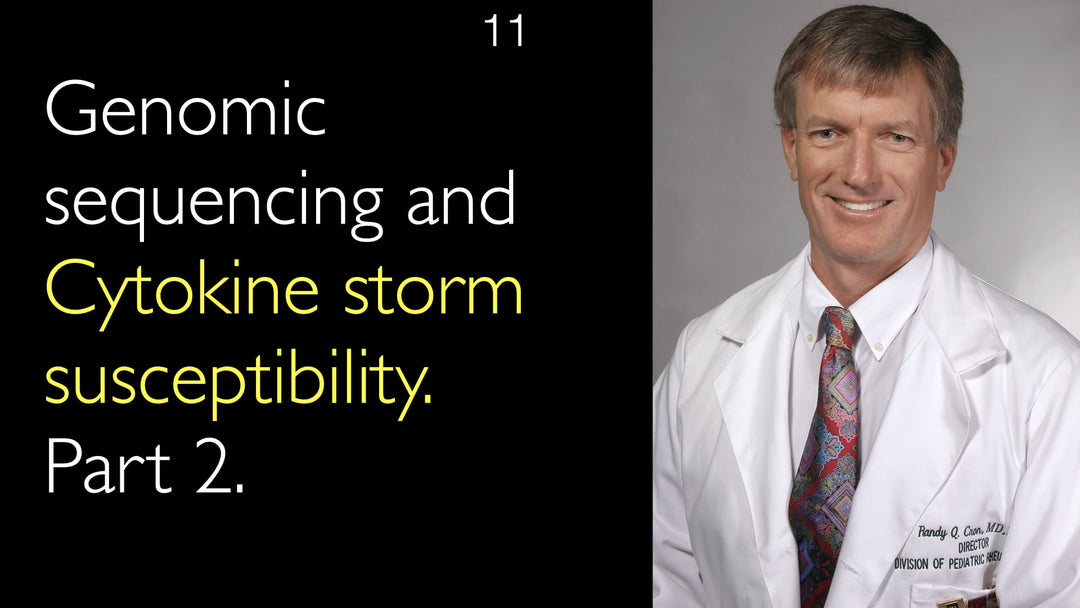Dr. Kent Yucel, MD, en ledande expert inom radiologi och magnetkamerateknik, förtydligar de avgörande skillnaderna inom cancerscreening. Han redogör för varför screening för bukspottkörtelcancer inte är effektiv för allmänheten. Dr. Yucel pekar ut högriskgrupper för levercancer som har stor nytta av regelbunden övervakning med magnetkamera och ultraljud. Tidig upptäckt av hepatocellulärt karcinom hos patienter med cirros kan leda till bot.
Pankreas- och levercancerscreening: Riktlinjer för högriskpatienter
Hoppa till avsnitt
- Utmaningar med pankreascancerscreening
- Effektivitet av levercancerscreening
- Högriskgrupper för pankreascancer
- Bildgivande verktyg: MRI och ultraljud
- Betydelsen av medicinsk second opinion
- Fullständig transkription
Utmaningar med pankreascancerscreening
Dr. Kent Yucel, specialist inom MRI och CT, ger en tydlig bild av pankreascancerscreening. Han konstaterar att screening av allmänbefolkningen för pankreascancer för närvarande inte rekommenderas. Sjukdomen är både dödlig och snabbt framskridande. En betydande utmaning är den höga förekomsten av godartade pankreascystor.
Dr. Kent Yucel förklarar att dessa godartade förändringar ofta påträffas vid screening. Det är svårt att bedöma deras betydelse när de är små, vilket leder till år av onödiga uppföljningar för patienterna. Tidsfönstret för att upptäcka en behandlingsbar pankreascancer är mycket kort. Screening med årlig CT eller MRI ger inte bättre resultat jämfört med standardvård.
Effektivitet av levercancerscreening
Till skillnad från pankreascancer är levercancerscreening mycket effektiv för specifika högriskpatienter. Dr. Kent Yucel betonar detta som ett kritiskt undantag. Patienter med underliggande leversjukdom är de främsta kandidaterna för övervakning, inklusive personer med cirros eller fibros av olika orsaker.
Vanliga orsaker är alkoholism, viral hepatit B och hepatit C. Dessa patienter löper en betydande risk att utveckla hepatocellulärt karcinom. Årlig screening med ultraljud och lever-MRI är standardvård. Dr. Kent Yucel framhåller att detta proaktiva förhållningssätt ofta upptäcker levercancer i ett tidigt, botbart stadium.
Högriskgrupper för pankreascancer
Även om allmän screening inte rekommenderas, påpekar Dr. Yucel att vissa högriskgrupper kan dra nytta. Dessa patienter har en betydligt förhöjd genetisk eller medicinsk benägenhet för pankreascancer. Viktiga riskfaktorer inkluderar en stark familjehistoria av sjukdomen och specifika genmutationer.
Dessa mutationer inkluderar BRCA1, BRCA2 och p16. Andra tillstånd som ärftlig pankreatit, Peutz-Jeghers syndrom och cystisk fibros ökar också risken. För dessa utvalda individer kan en personlig screeningsplan med en specialist vara lämplig. Dr. Anton Titov diskuterar ofta vikten av genetisk rådgivning i sådana fall.
Bildgivande verktyg: MRI och ultraljud
Valet av bildmodalitet är avgörande för effektiv cancerövervakning. Dr. Kent Yucel är expert på att använda MRI och CT för diagnostik. För levercancerscreening hos patienter med cirros används både ultraljud och MRI. MRI, inklusive MRCP-sekvenser, ger detaljerad visualisering av levern och gallgångarna.
För pankreasrelaterade frågor kan MRCP visualisera pankreasgången, men dess användbarhet i screening begränsas av de faktorer Dr. Yucel nämnt. CA 19-9-blodprovet används ibland men är endast cirka 80 % tillförlitligt och fungerar inte som ett pålitligt fristående screeningsverktyg för allmänbefolkningen.
Betydelsen av medicinsk second opinion
Att söka en medicinsk second opinion är ett viktigt steg för patienter som navigerar en cancerdiagnos eller högriskstatus. Dr. Anton Titov framhäver dess betydelse för att bekräfta behandlingsplaner. En second opinion kan verifiera om avancerad bildtagning som MRI eller MRCP verkligen är nödvändig, samt säkerställa att den valda behandlingsstrategin är den mest aktuella och effektiva.
Denna process ger patienter och familjer förtroende för sin vårdresa. Rådgivning med en specialist som Dr. Kent Yucel kan ge klarhet i komplexa radiologifynd och är en proaktiv åtgärd för att uppnå bästa möjliga hälsoutfall.
Fullständig transkription
Pankreascancer- och levercancerscreening är aktuella ämnen. Pankreascancer är en dödlig sjukdom, och många patienter med viral hepatit och fetlever har hög risk för levercancer.
Dr. Anton Titov: Hur ska pankreascancerscreening genomföras? Är det effektivt att screena patienter för pankreascancer med MRCP eller CT?
Pankreascancer- och levercancerscreening är viktigt. Tidig upptäckt av pankreascancer är avgörande. Alla läkare och patienter hoppas på effektiva screeningtester för pankreascancer, men screening för allmänbefolkningen rekommenderas för närvarande inte. Screeningtestet för pankreascancer är onkogenet CA-19-9, men det är endast 80 % tillförlitligt.
Medicinsk second opinion kan bekräfta när MRI eller MRCP hos högriskpatienter med cancer är lämpligt, samt hjälpa till att välja den bästa behandlingsstrategin för pankreascancer eller levercancer. Sök medicinsk second opinion om pankreascancer och levercancer för att vara säker på att din behandling är den bästa som finns tillgänglig.
Dr. Kent Yucel: MRI-screening för pankreascancer fungerar för högriskpatienter med familjehistoria av pankreascancer. Tidig upptäckt är viktigt hos patienter med genmutationer (BRCA1, BRCA2, p16) som ökar risken för pankreascancer.
Personer med viral hepatit har hög risk för levercancer och bör screenas för tidigt hepatocellulärt karcinom. Screening för tidiga tecken på levercancer med MRI och MRCP är effektivt hos högriskpatienter.
Dr. Anton Titov: Är MRCP en möjlighet att screena för pankreas- eller levercancer, som båda är kända för att vara mycket dödliga?
Dr. Kent Yucel: Nej, med ett undantag. Pankreascancer är mycket dödlig och växer snabbt. Pankreas är ett område med många godartade förändringar och cystor, så screening med MRCP hittar ofta oviktiga, obetydliga lesioner.
När de är små vet vi sällan om de är betydelsefulla eller inte, vilket leder till att patienter följs i många år för att bevisa att de inte växer. Tyvärr är tidsfönstret kort för att hitta pankreascancer mellan den tid den kan upptäckas med MRI och den tid den har vuxit till en storlek då vi ändå skulle ha hittat den.
Att göra CT eller MRI varje år kommer inte att upptäcka cancern i tid för att göra något åt den. Så screening ger sannolikt inte bättre resultat än vanlig fysisk undersökning och normal vård. Trots att pankreascancer är en fruktansvärd sjukdom och vi önskar att vi kunde förebygga den, är screening inte hjälpsamt.
Det område där MRI är hjälpsam i screening är hos patienter med levercirros, leverfibros eller fetleversjukdom, orsakat av till exempel alkoholism, hepatit B eller hepatit C. Dessa patienter löper en betydande risk att få levercancer.
Ultraljud samt lever-MRI och MRCP används för att screena dessa patienter årligen för att leta efter tidig levercancer. Vi kan ofta hitta levercancer hos dessa patienter i ett tillräckligt tidigt stadium för att behandla och bota cancern.
Så detta är ett undantag för screening av lever- och pankreassjukdom med MRCP, men det gäller inte normala patienter utan patienter med underliggande leversjukdom. MRI och ultraljudsscreening används här.
Patienter med hög risk för pankreascancer kan dra nytta av screening. Hög risk inkluderar kronisk pankreatit, familjehistoria av pankreascancer, ärftlig pankreatit, Peutz-Jeghers syndrom, cystisk fibros och familjär atypisk multipel födelsmärkesmelanom (FAMMM).
Dr. Anton Titov: Bör patienter screenas för cancer?


